Giving back to your community once you get sober is an excellent way to strengthen your recovery process. You might find that being a part of your Buckhannon community provides you with purpose and also helps you stay sober. Community service and supporting local initiatives helps you remain motivated, and build relationships and trust. We will discuss ways to give back to your Buckhannon community after getting sober and how community involvement can help you improve your health. Those are practical steps to help you make a difference and move ahead with your recovery.
10 Ways To Give Back To Your Buckhannon Community After Getting Sober
Giving back to the Buckhannon community once you get sober can help you recover and bring you back to life. Community involvement and helping others can help you make connections and strengthen sobriety. Signing up for programs like drug and alcohol rehab in West Virginia can also enhance your support network and provide additional resources. These actions not only benefit those around you but also contribute to your personal growth and well-being. Let’s explore ten meaningful ways to give back to your community!
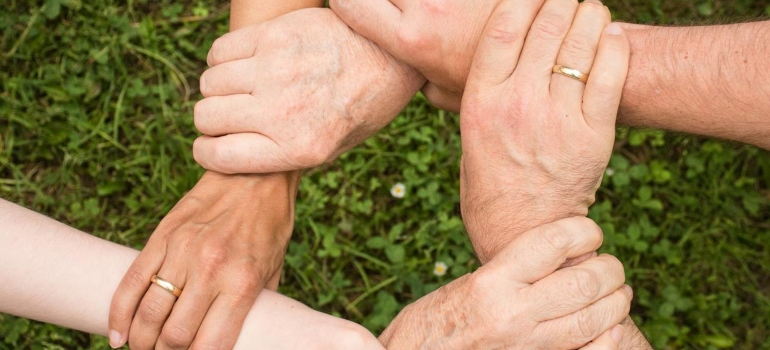
Volunteering Opportunities
Numerous local organizations and charities welcome volunteers, offering various roles that can benefit from your unique experiences and skills. Here are some local organizations and volunteer opportunities:
- Upshur County Public Library: Volunteers can help with re-shelving materials, creating displays, or even running community events
- Mountain Cap of WV, Inc.: This organization provides housing assistance and welcomes volunteers for various support roles
- Create the Good – AARP: Offers various volunteer opportunities, such as tutoring, mentoring, and community event organization
By doing these you can make a difference in your community and reinforce sobriety. Volunteering can give you structure and a purpose in recovery. These activities, along with the benefits of sober living WV, provide a strong foundation for lasting sobriety. These are the options that you can consider:
- Homeless shelters: Provide meals, organize donations, or offer mentorship
- Food banks: Help with sorting and distributing food to those in need
- Animal shelters: Assist with animal care, adoption events, and facility maintenance
- Youth mentoring programs: Offer guidance and support to young people through tutoring or sports coaching
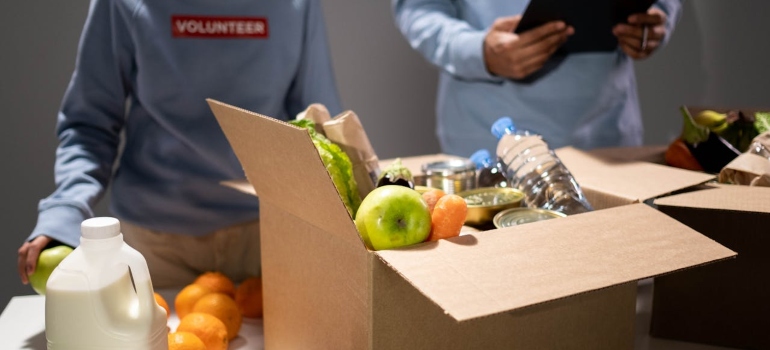
Support Local Recovery Programs
Supporting local recovery programs after getting sober is an excellent way to give to the community. You may sign up for local Alcoholics Anonymous or Narcotics Anonymous meetings to tell your story and help newcomers. Mentoring someone new to recovery may provide them with the push they need to keep on track. Your insight and experience could be of assistance to somebody just beginning in recovery – give hope and useful suggestions on how to remain sober. Depending on the specific needs, here are some of the options that you can advise them to choose from:
- CBT treatment plan for substance abuse
- alcohol rehab centers in WV
- benzo rehab
- cocaine rehab West Virginia
Volunteering at local treatment centers or recovery programs is another way to assist those in early recovery. You can be a guide, share your journey, and listen to individuals going through sobriety. Lots of treatment centers need volunteers to assist with group sessions, recreational activities, or administrative tasks. You help create a place for recovery and growth by giving your time and support. This involvement not only benefits others but also strengthens your own personal dedication to a sober and fulfilling life.
Organize Community Events
Community events promoting health and wellness are a good way to give back to your Buckhannon community after getting sober and unite the community. You can arrange or even take part in sober social events, charity runs/walks, and community clean-up days. These events promote a healthy lifestyle in addition to socialization. You build a more supportive community by organizing such events.
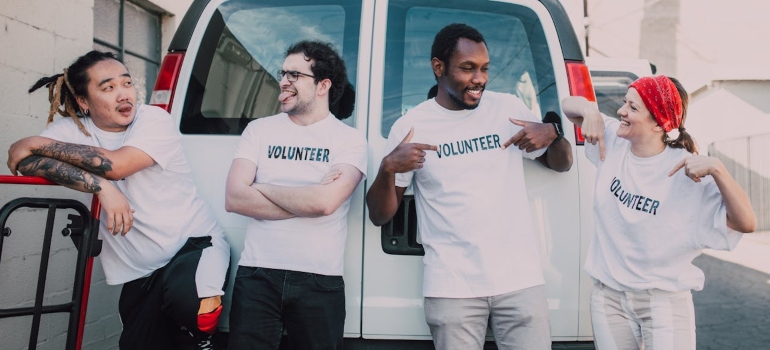
Working with local businesses and organizations might make these events more impactful. Together, you can create activities that cultivate community spirit and unity. Local businesses may sponsor or offer resources, and organizations may offer volunteer assistance and expertise. This collaboration ensures that events are well-organized and have a greater reach, making a more significant impact on the community. Examples of community events:
- Sober social gatherings
- Charity runs/walks
- Community clean-up days
Start a Support Group
Start a recovery support group for other people to reinforce your sobriety and give back to your Buckhannon community after getting sober. Begin by finding a location that offers privacy and comfort – a community center or maybe a local church may be a great place to start. Advertise your group on social media, local bulletin boards, and recovery centers. Setting a regular schedule and having a clear focus for each meeting will help create a consistent and supportive environment. Encourage members to share experiences and struggles – build fellowship and support one another.
Creating a safe space for people to share their experiences and support each other has numerous benefits. It enables members to connect with others who understand their journey, decreasing feelings of isolation. Sharing personal stories and coping techniques can provide practical advice and inspiration. Also, a sense of community and accountability might encourage sobriety. A support group keeps people focused on their recovery and also builds friendships that last.
Educate and Raise Awareness
Addiction and recovery education seminars and workshops can be a way of raising awareness – by participating in or even coordinating these kinds of workshops and seminars. These events may be informative about addiction causes and effects and offer advice for all those looking for help. Work with local experts and recovery centers to get the correct information out there. Sharing personal stories and experiences at these sessions may also help humanize the issue and get people talking about seeking professional help. Once they decide to do so, you can suggest one of these options to them:
- intensive outpatient program West Virginia
- inpatient drug rehab centers in West Virginia
- partial hospitalization program West Virginia
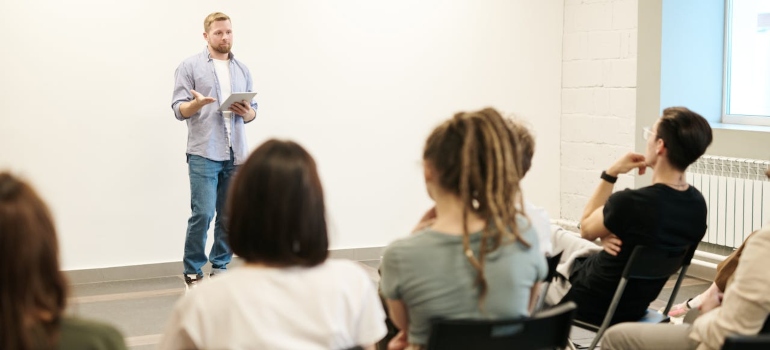
A second strategy is working with local schools or community centers to offer information and resources concerning substance abuse prevention. Arrange information sessions for students and parents about the risks of substance abuse and the need for early intervention. Distribute educational material and access to local resources and services. You can educate the community and build a more informed, supportive environment to prevent addiction and help those in recovery.
Share Your Story
Sharing your recovery journey will help others become inspired and help them. Your story might give hope, direction, and motivation to all those in need. By being open about your struggles, you can show others recovery may be possible and they’re not on their own in it. Personal stories can remove stigma and build community for all those seeking help.
You could share your personal story in a number of ways. Public speaking at events including community events, recovery meetings, or schools can reach a broad audience. Writing for local publications or even creating a blog enables you to share your experiences in detail. Social media also gives you an area to interact with others and to talk about your message of recovery and hope. You are able to make a positive change in peoples’ lives and in your own personal sobriety by sharing your story.
- Public speaking at events
- Writing for local publications
- Creating a blog
- Sharing on social media
Mentorship and Peer Support
Mentoring others who are new to recovery might be a fulfilling way to give to the community. You can be a mentor if you can offer advice, experience, and support to other individuals just beginning their recovery journey. Your insights can help them through challenges and keep them motivated. Building a mentor-mentee relationship develops trust and a steady support system that is important in early recovery.
Providing peer support through existing programs or creating a new mentorship initiative could also make a significant impact. Volunteers might help with peer support groups in many recovery programs, where individuals share experiences and encourage one another. In case no programs exist, start a brand new initiative. Work with local recovery centers or community organizations to develop a mentorship program.
Donate to Local Causes
Donations help local charities and organizations continue to offer shelter, food, and support services. You may also donate clothing, food, or other essentials. These donations can transform someone’s life by giving them resources they might not have otherwise. By donating, you support community resilience and show solidarity with all those in need. You might want to donate the following:
- Clothing: New or gently used clothing for all ages
- Food: Non-perishable food items and canned goods
- Essentials: Toiletries, blankets, and school supplies

Participate in Community Projects
Participating in community improvement projects, such as park renovations or public art installations, is a great way to give back to your Buckhannon community. These projects beautify the area and provide residents with a sense of pride and ownership. You can make public spaces more pleasurable and accessible by getting involved. This collective effort develops cooperation and unity and makes more people involved in community development.
These projects also give you a feeling of achievement and personal development. Putting together a community project builds self-esteem and also gives you something to be proud of. It allows you to meet new people, develop new skills, and work towards a goal. Also, improvements through these projects could bring in even more visitors and raise local morale.
Advocate for Policy Changes
Supporting those in recovery through local advocacy is a powerful thing. Advocate for policies that increase access to treatment and also decrease stigma. Join local advocacy groups/initiatives focusing on substance abuse and mental health policy changes. Those efforts could include community meetings, letters to local government officials, or even awareness campaigns. By speaking up, you make a space that’s more accepting of people in recovery.
For real policy change, you should work with local government officials/organizations. Collaborate with healthcare providers, nonprofits, and community leaders to advocate for improved treatment access and funding. Advocate for laws promoting recovery programs, mental health services, and anti-stigma initiatives. Your efforts may result in better resources and support for addicts. With persistent advocacy, you can create a recovery community that supports public health and safety.
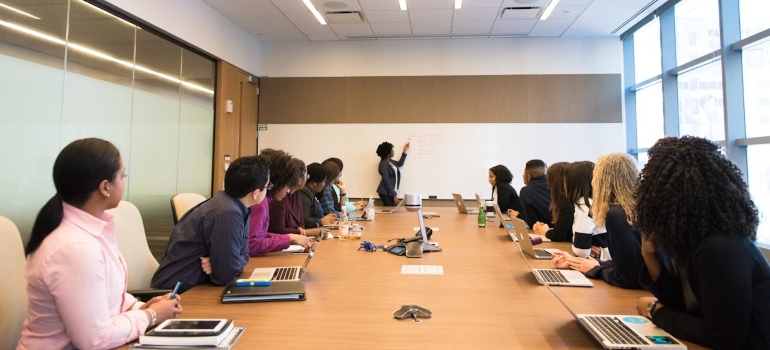
The Scope of Addiction and Mental Health Disorders And the Role of Community Support in Recovery
Statistics indicate that substance use and mental health disorders are significant issues in the U.S. Among individuals aged 12 and older, approximately 46.3 million people met the criteria for having a substance use disorder in the past year, with 61.2 million people using illicit drugs. Furthermore, nearly 1 in 4 adults experienced mental illness, and the overlap between substance use and mental health disorders is substantial, with many experiencing co-occurring conditions.
Addressing these issues requires comprehensive treatment approaches, including therapy, medication, and support systems, to effectively manage both mental health and substance use disorders. The combination of personalized treatment plans and community support is necessary to help people achieve and maintain recovery.
Making a Positive Impact: Give Back To Your Buckhannon Community After Getting Sober
Giving back to your Buckhannon community after getting sober offers numerous ways to make a positive impact. From volunteering at local charities and supporting recovery programs to organizing community events and advocating for policy changes, there are many opportunities to contribute. These actions benefit both the individual and the community, fostering a sense of purpose and connection. Engaging in these activities helps strengthen your commitment to sobriety while improving the lives of those around you. Take the first step today to make a difference and give back to your Buckhannon community after getting sober. Your efforts can create lasting positive change and support a healthier, more connected community.
Reference:
https://www.hhs.gov/about/news/2023/01/04/samhsa-announces-national-survey-drug-use-health-results-detailing-mental-illness-substance-use-levels-2021.html



